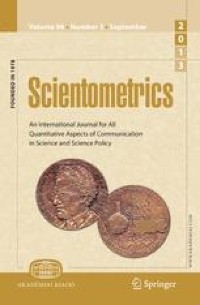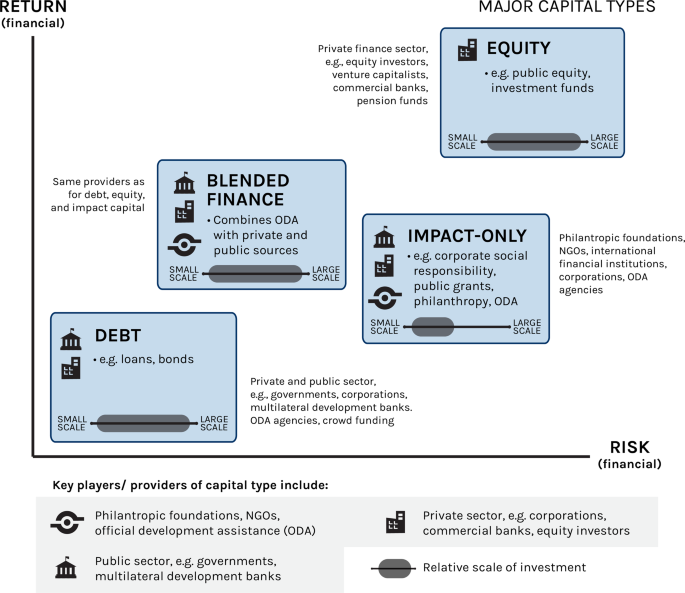publications
Send us a link
I Critiqued My Past Papers on Social Media - Here's What I Learnt
The systems of science must reward honesty about mistakes to speed progress.

Reduced Sensitivity of SARS-CoV-2 Variant Delta to Antibody Neutralization
The SARS-CoV-2 B.1.617 lineage was identified in October 2020 in India1-5. It has since then become dominant in some indian regions and UK and further spread to many countries6. The lineage includes three main subtypes (B1.617.1, B.1.617.2 and B.1.617.3), harbouring diverse Spike mutations in the N-terminal domain (NTD) and the receptor binding domain (RBD) which may increase their immune evasion potential. B.1.617.2, also termed variant Delta, is believed to spread faster than other variants. Here, we isolated an infectious Delta strain from a traveller returning from India. We examined its sensitivity to monoclonal antibodies (mAbs) and to antibodies present in sera from COVID-19 convalescent individuals or vaccine recipients, in comparison to other viral strains. Variant Delta was resistant to neutralization by some anti-NTD and anti-RBD mAbs including Bamlanivimab, which were impaired in binding to the Spike. Sera from convalescent patients collected up to 12 months post symptoms were 4 fold less potent against variant Delta, relative to variant Alpha (B.1.1.7). Sera from individuals having received one dose of Pfizer or AstraZeneca vaccines barely inhibited variant Delta. Administration of two doses generated a neutralizing response in 95% of individuals, with titers 3 to 5 fold lower against Delta than Alpha. Thus, variant Delta spread is associated with an escape to antibodies targeting non-RBD and RBD Spike epitopes.
Science, not speculation, is essential to determine how SARS-CoV-2 reached humans
Open access book usage data: how close is COUNTER to the other kind?
Open access book usage data - how close is COUNTER to the other kind?
Energy Transition Needs to Accelerate Urgently, Says EU's Scientific Advice Mechanism
Energy Transition Needs to Accelerate Urgently, Says EU's Scientific Advice Mechanism
There are many possible pathways towards a carbon-neutral future — and achieving it by 2050 is possible but requires urgent action.
Good Practices in Mission-oriented Innovation Strategies and Their Implementation
Good Practices in Mission-oriented Innovation Strategies and Their Implementation
Modern innovation policies should target in equal measure both economic competitiveness and societal progress. They should be informed by ambitious, overarching principles-based strategies that enable us to formulate specific political goals, or missions. We also need governance structures that allow for the agile, participatory and inclusive implementation of innovation policy measures. Presenting good examples of such strategies and structures, this study examines what these examples have to offer in terms of lessons learned.

Quality Shines when Scientists Use Publishing Tactic Known As Registered Reports, Study Finds
Quality Shines when Scientists Use Publishing Tactic Known As Registered Reports, Study Finds
Papers accepted by journals before results are known rate higher on rigor than standard studies.

Moral Judgments About an Activity's COVID-19 Risk Can Lead People Astray
People use values and beliefs as a shortcut to determine how risky an activity is during the pandemic. Those biases can lead people astray.

Study Investigates Links Between Personality and Vocal Characteristics
Everyone has at some point been charmed by the sound of a person's voice: but can we believe our ears? What can a voice really reveal about our character?

The Marginal Impact of a Publication on Citations, and Its Effect on Academic Pay
The Marginal Impact of a Publication on Citations, and Its Effect on Academic Pay
There are good reasons for why academicians should care about citations to scholarly articles. An important one is that members of the academy operate essentially as independent contractors.
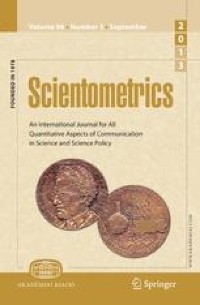
The Widespread and Unjust Drinking Water and Clean Water Crisis in the United States
The Widespread and Unjust Drinking Water and Clean Water Crisis in the United States
Proper water and sanitation access remains an issue for many in the United States. Here the authors estimate and map the full scope of water hardship, including both incomplete plumbing and water quality across the country.
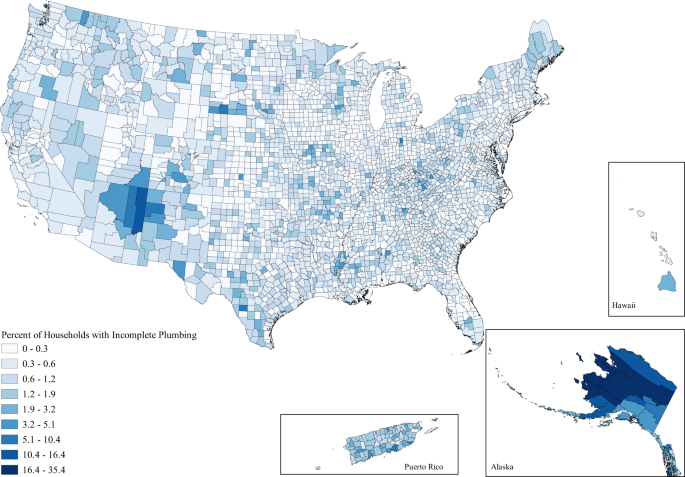
Reframing Strategic, Managed Retreat for Transformative Climate Adaptation
Human societies will transform to address climate change and other stressors. How they choose to transform will depend on what societal values they prioritize. Managed retreat can play a powerful role in expanding the range of possible futures that transformation could achieve and in articulating the values that shape those futures. Consideration of retreat raises tensions about what losses are unacceptable and what aspects of societies are maintained, purposefully altered, or allowed to change unaided. Here we integrate research on retreat, transformational adaptation, climate damages and losses, and design and decision support to chart a roadmap for strategic, managed retreat. At its core, this roadmap requires a fundamental reconceptualization of what it means for retreat to be strategic and managed. The questions raised are relevant to adaptation science and societies far beyond the remit of retreat.
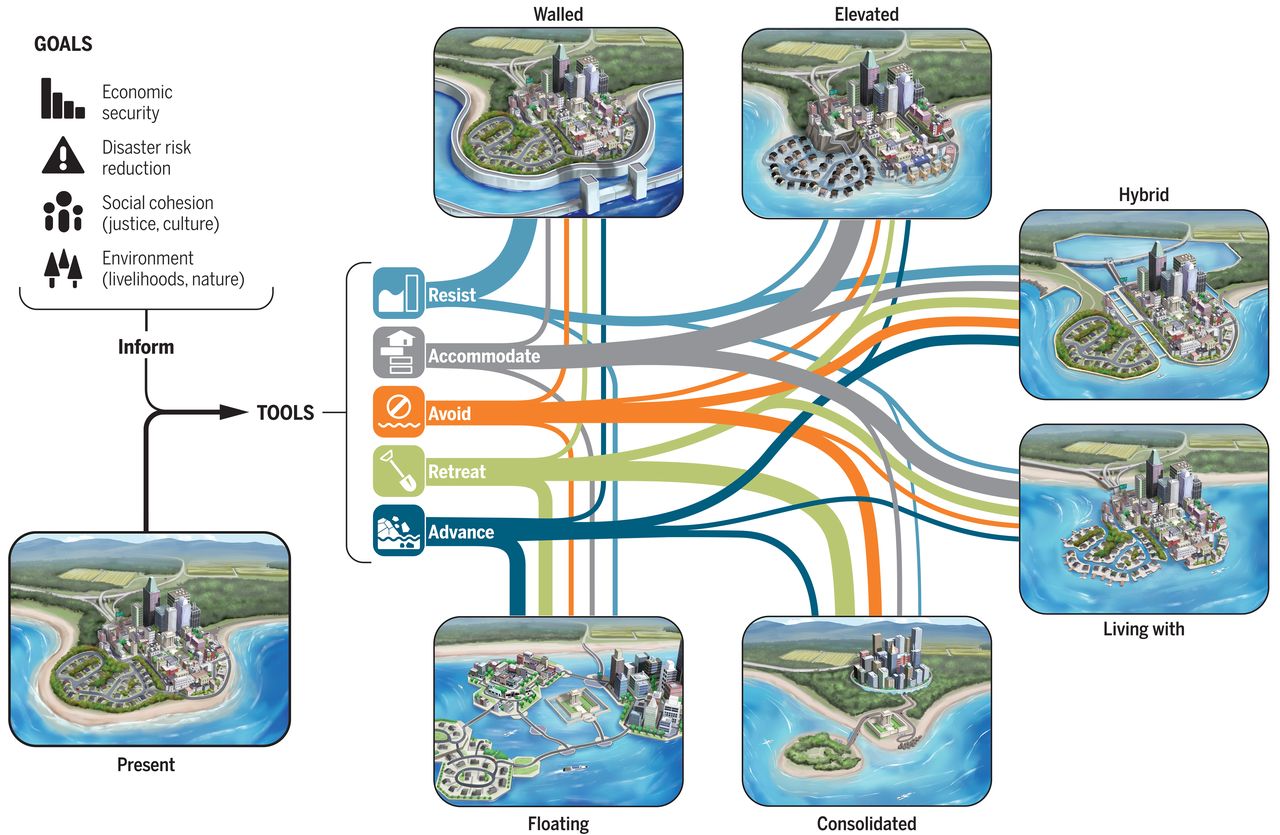
A New Memoir Tells the Life Story of NASA 'hidden Figure' Katherine Johnson
A New Memoir Tells the Life Story of NASA 'hidden Figure' Katherine Johnson
"My Remarkable Journey" gives the backstory of NASA mathematician Katherine Johnson, the central character of the 2016 film "Hidden Figures."

Practical Guide to Sustainable Research Data
Science Europe is developing a tool for research funding and performing organisations to evaluate their current status and optimise their progress towards sustainable data sharing, according to their strategic priorities.

Harnessing Artificial Intelligence and Machine Learning in Biomedical Applications with the Appropriate Regulation of Data
Harnessing Artificial Intelligence and Machine Learning in Biomedical Applications with the Appropriate Regulation of Data
The risks associated with poor medical database management are ever heightened in today's global pandemic, as the world struggles with control over COVID-19.

Gender Disparity in Research Productivity Across Departments in the Faculty of Medicine: a Bibliometric Analysis
Gender Disparity in Research Productivity Across Departments in the Faculty of Medicine: a Bibliometric Analysis
Women's contributions to the medical field have increased substantially over the past 4 decades but women remain underrepresented. Since research productivity is an important criterion for promotion, it was essential to assess the gender differences within the faculty of medicine and across departments. We conducted a bibliometric analysis using the Scopus database between 2009 and 2018 at the American University of Beirut (N = 324, 93 women, 231 men). Women comprised 29% of the faculty. The rank of Professor was held by 34% of men and 18% of women (p < 0.0001). Mean number of publications was 30.12 for males compared to 20.77 for females (p = 0.007). Men were more often last authors (p < 0.0001) and corresponding authors (p < 0.01). In the MD subcategory (N = 282), the gender difference in number of publications, H-index, and total citations was not significant. Women MDs were underrepresented as last authors (p < 0.0001). Among PhD faculty (N = 42), males had greater H-Indices (p = 0.02) and were more often last and corresponding authors. After adjusting for the year of appointment: the gender differences in corresponding and last authorship lost statistical significance among MDs but not among PhDs where it became more pronounced. In conclusion, women in the faculty of medicine were underrepresented in most departments, senior ranks and senior research authorships; H-indices generally did not differ, which was partially explained by the later year of appointment among females. In a developing country, greater family responsibilities especially early in their careers, may put women at a disadvantage in research productivity.
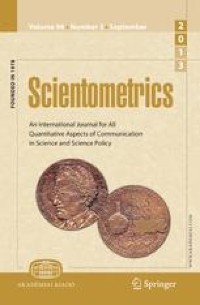
The Matthew Effect Impacts Science and Academic Publishing by Preferentially Amplifying Citations, Metrics and Status
The Matthew Effect Impacts Science and Academic Publishing by Preferentially Amplifying Citations, Metrics and Status
The Matthew Effect, which breeds success from success, may rely on standing on the shoulders of others, citation bias, or the efforts of a collaborative network. Prestige is driven by resource, which in turn feeds prestige, amplifying advantage and rewards, and ultimately skewing recognition.
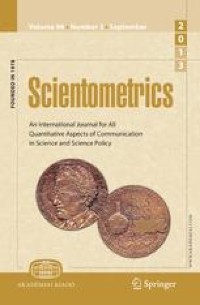
Open Access Uptake in Germany 2010-2018: Adoption in a Diverse Research Landscape
Open Access Uptake in Germany 2010-2018: Adoption in a Diverse Research Landscape
This study investigates the development of open access (OA) to journal articles from authors affiliated with German universities and non-university research institutions in the period 2010-2018 and can serve as a baseline to assess the impact recent transformative agreements with major publishers will likely have on scholarly communication.
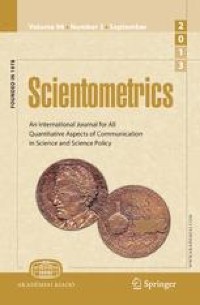
Frosty Reception for Algorithm That Predicts Research Papers' Impact
A mathematical model designed to forecast the success of biotechnology papers has drawn criticism from researchers.

Nonreplicable Publications Are Cited More Than Replicable Ones
We use publicly available data to show that published papers in top psychology, economics, and general interest journals that fail to replicate are cited more than those that replicate. This difference in citation does not change after the publication of the failure to replicate. Only 12% of postreplication citations of nonreplicable findings acknowledge the replication failure. Existing evidence also shows that experts predict well which papers will be replicated.
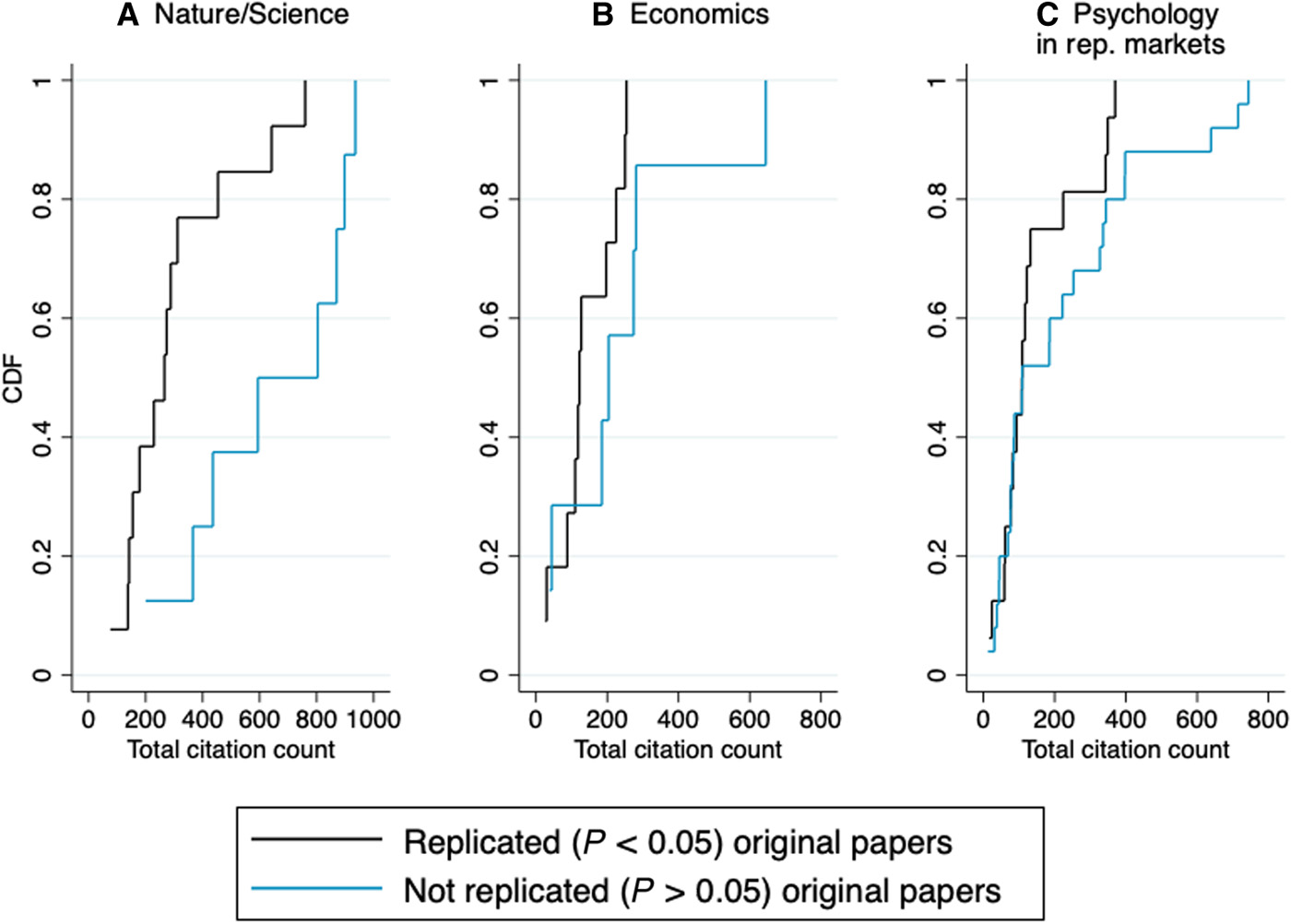
German Professors' Motivation to Act As Peer Reviewers
Acting as a reviewer is considered a substantial part of the role-bundle of the academic profession. However, little is known about academics' motivation to act as reviewers.

A Network Analysis of COVID-19 MRNA Vaccine Patents
A preliminary network analysis highlights the complex intellectual property landscape behind mRNA-based COVID-19 vaccines.
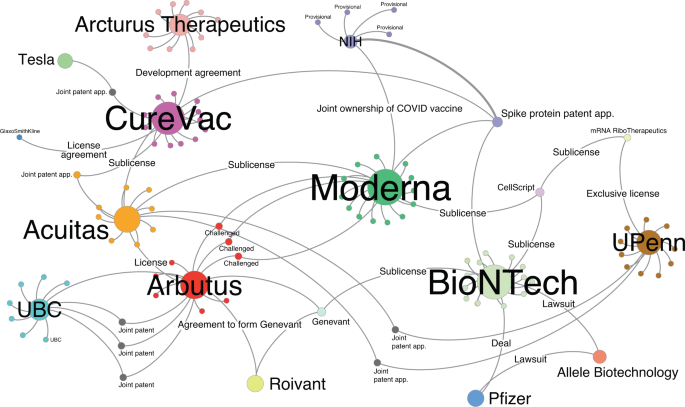
Climate Emissions Shrinking the Stratosphere, Scientists Reveal
Thinning indicates profound impact of humans and could affect satellites and GPS.

A study of the determinants of psychologists' data sharing and open data badge adoption
A study of the determinants of psychologists' data sharing and open data badge adoption
This study examines psychologists' motivations to share data and how to better promote psychologists' data sharing and open data badge adoption.
Assessment of Gender Divide in Scientific Communities
Increasing evidence of women's under-representation in some scientific disciplines is prompting researchers to reassess common narratives that women's under-representation is due to limited skills and/or social centrality.
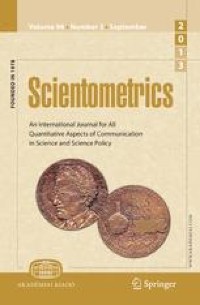
Fact or Fake? Tackling Science Disinformation
This discussion paper describes and discusses the problems and the consequences of science disinformation in three areas of concern, namely climate change, vaccines and pandemics, and what we can do to increase awareness and minimize harm caused by the spread of disinformation.
Comparison of Preprints and Final Journal Publications from COVID-19 Studies
Comparison of Preprints and Final Journal Publications from COVID-19 Studies
A comparison of preprints and their final journal publications show discrepancies in results reporting and spins in interpretation.
